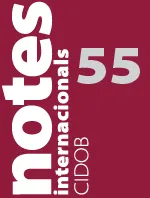Pakistan: The Status Quo Prevails, or Time for Something Completely Different? Part One: The Economy & Governance

Notes internacionals CIDOB, núm. 55
- Whatever the outcomes of Pakistan’s upcoming elections in 2013, the country and its rulers face a number of critical challenges. These include a stagnant economy in deterioration since 2007, with a population growing at 1.6% (and currently approximately 180 million), poor economic indicators, and a growing disparity between rich and poor; and good (or at least improved) governance.
- The question of how to maximise the opportunities inherent in the potential opening up of trade with India, beyond the short term alone, and how to prevent the hawks on both sides of the border from weakening trade agreements to prevent them reaching their full potential, presents both an opportunity and a challenge. Whilst initial indications are positive, will the current government or its successor be up to steering this delicate path?
- Addressing the issues of poor management of energy supply, and inefficient public sector enterprises could yield economic dividends. However, unless they are supported by improved governance, the benefits will be limited or absent.
- Overall, governance issues can be characterised as the repeated failure to regard the people of Pakistan as citizens, rather than as clients of a patron state. Furthermore, recent promising constitutional and legislative amendments have yet to be translated into implementation on the ground that is meaningful to the common man or woman.
- The twin challenges of provincialism and nationalism, particularly in Balochistan and FATA, and the implications for the federation of the creation of a new province of Bahawalpur in the Punjab will need to be faced without resorting to military “solutions”, as will the geopolitical realities of the nuclear issue.
(...)